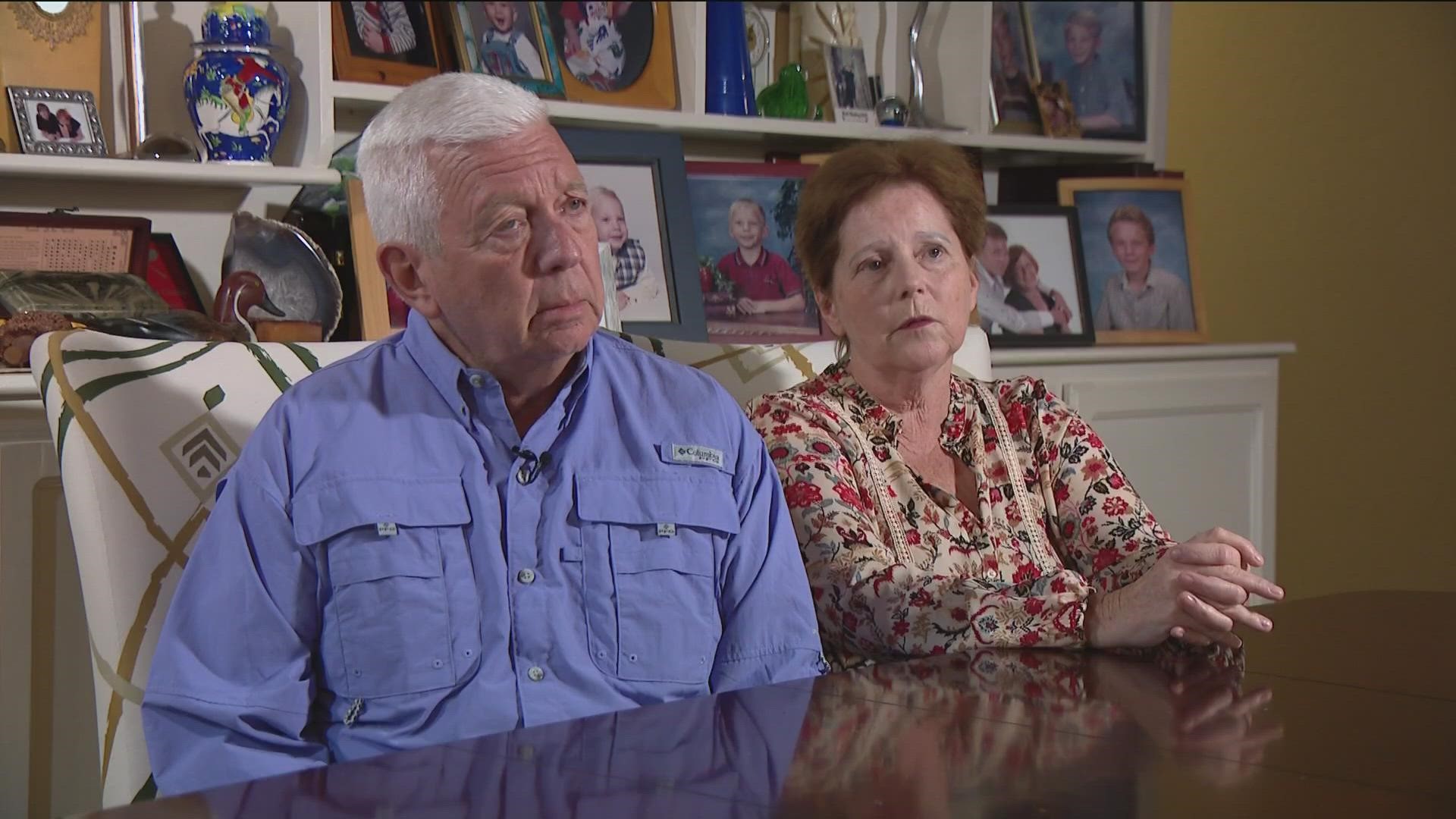EL CAJON, Calif. — One in four people in the United States lives with a mental illness, according to Johns Hopkins, and for their loved ones who try to get them help, the struggle can be overwhelming.
One local family is sharing their very personal story in an effort to help others facing similar challenges realize that they are not alone.
"That's a kindergarten shot there," said El Cajon resident Bruce Wollitz, as he points out school pictures of his younger son Marshall. "You can see the happiness and the future all ahead of him."
It's a future that Bruce and his wife Melinda could have never predicted for Marshall.
"You can see it in the school pictures right here," Bruce added. "That's where it starts."
Academically gifted and musically talented, Marshall had been a happy-go-lucky young boy.
"Well-liked, mischievous," Melinda said. "He was a really funny little guy."
Beginning in early adolescence, though, Marshall began to change.
"Quiet... didn't engage," she added. "It was like somebody turned a light switch off."
Increasingly remote and secretive, Marshall had begun to experiment with alcohol and drugs. Until one day, his parents found him in the bathroom unconscious.
"The door was locked," Melinda said. "And that's when we went: Something is definitely wrong."
Years of therapy and occasional hospitalizations followed, including a year-and-a-half at a facility in Utah.
"Which I don't think it helped at all because he learned a lot about drugs from all the kids that were in there," she added.
Still earning top grades, Marshall graduated and went on to UC Santa Cruz to study chemistry.
"That's when he was diagnosed bi-polar," Melinda said.
Although struggling, Marshall managed to earn his degree, and went on to work briefly for a bio-tech firm in North County. But his issues with drugs continued to overpower him.
"He lost his job," she added "He took too much time off. I don't think we ever saw the real Marshall again."
Bruce and Melinda, both retired school teachers, said that their son's behavior turned increasingly violent.
"Coming off of whatever drug he was on, just crazy," Melinda told CBS 8. "And one day we just said, 'You can't be like this,' and we opened the door, and he walked out with the clothes on his back."
In the years that followed, Marshall survived on the streets in between brief hospitalizations.
"Eating out of trash cans, panhandling for his meth," she added. "He said he could get five dollars a day and get enough meth."
At one point, Marshall ended up behind bars.
"And then you think, Okay, this is going to do it, nine months in jail," Bruce said
"But he was right back out, got high, came to the door looking for clothes, and then took off again," Melinda added.
It would be 14 more months before Bruce and Melinda got any news of their son, during a cold snap last December.
"He was found with an overdose in a puddle," they said. "He probably would have died if he had been there 12 more hours, essentially dead."
Marshall was suffering from hypothermia, and his kidneys were failing. His parents say that his foot was also paralyzed, requiring him to now use a wheelchair.
Marshall spent weeks at UC San Diego Medical Center in Hillcrest, before being transferred to a skilled nursing facility, and also agreeing to enter rehab.
"This is the farthest we've ever gotten in his whole life," Bruce added. "The first time he's said yes to treatment."
And while they are cautiously hopeful, the Wollitz's feel it is important to share their story.
"So that other people get some hope out of knowing that other people are going through this and surviving it, and maybe they can do the same thing," Melinda said "It is awful. It's like having a person die but they're still alive."
They're calling for more mental health resources, including additional beds for treatment and less time-consuming red tape in trying to seek help for loved ones.
"There are obstacles to any homeless person who wants to get help," Bruce said.
They're also supportive of the California's new Care Court program, which San Diego will be piloting beginning this fall. It aims to provide court-ordered care up to 24 months for those struggling with mental illness and substance abuse.
"Most people are constantly complaining about the homeless," Melinda added. "They understand that over 50 percent of them are mentally ill. If we can get them help by 'making them' take medication, get them resources, you know they are going to be better off. We all know that is not abusing them."
While the Wollitz's said their story is not necessarily unique, they want others in similar situations to know they're not alone.
"We're just a middle-class family who loved their children, and look what happened," Melinda said. "So it can happen. Mental illness happens to people."
In the meantime, they pray for a happy ending to Marshall's story, as he begins rehab.
"It may be a new life for him, let's hope," Bruce said.
"We hope," Melinda added.
WATCH RELATED: New mental health clinic for veterans and active-duty service members opens in Oceanside (Oct. 2022).

